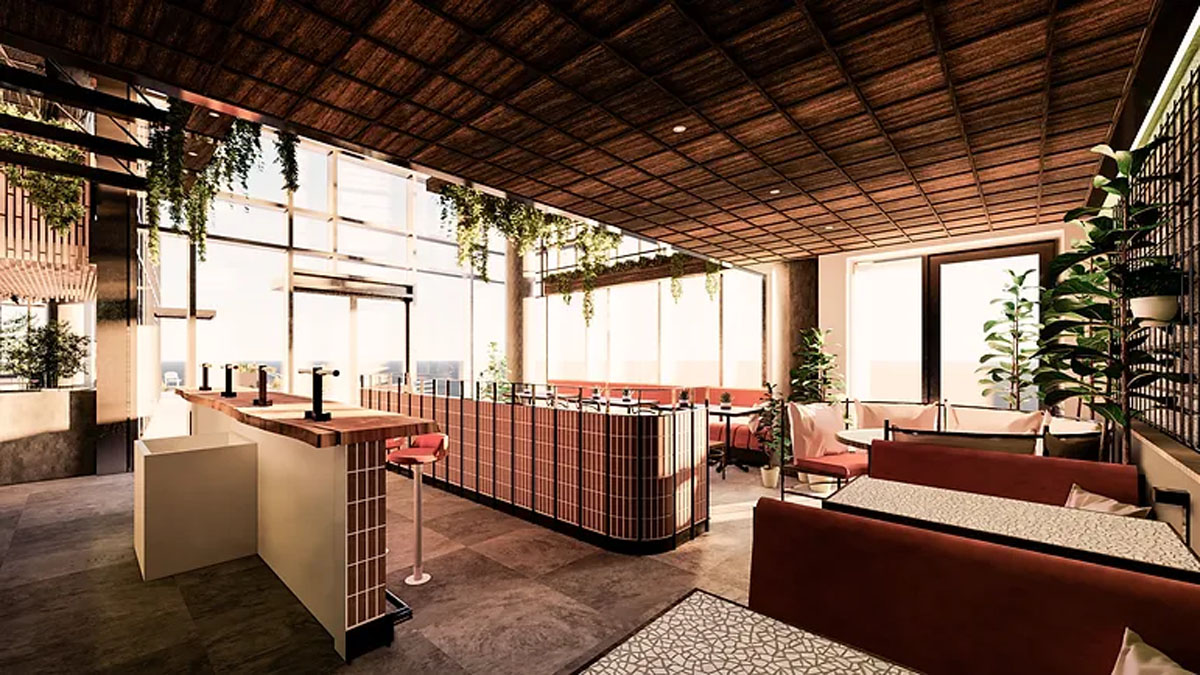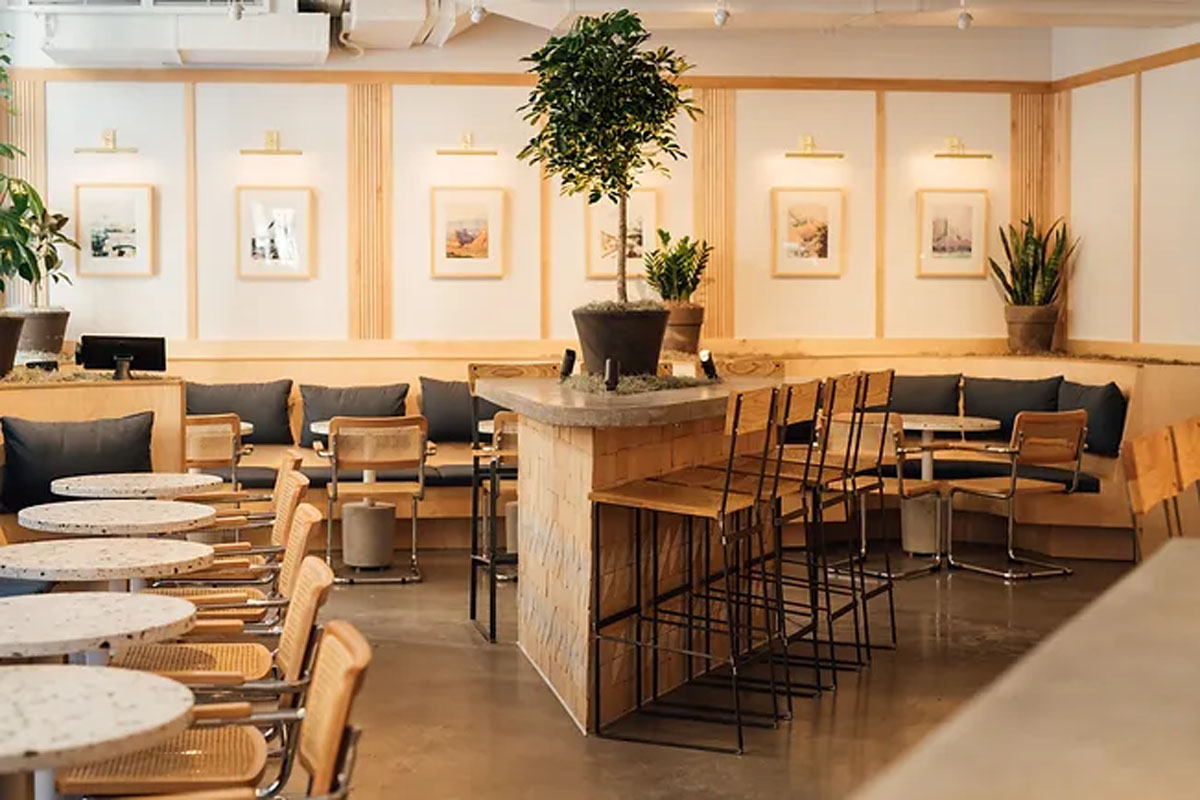
Despite state laws prohibiting public cannabis consumption, the cannabis industry is inching closer to relaxing regulations on consumption settings. However, the implementation of “hospitality rooms,” as outlined in Colorado legislation since 2019, has encountered a sluggish start, prompting doubts within the industry about their viability. These specialized rooms, potentially modeled after a spa environment, aim to offer designated spaces for cannabis consumption.
Recent discussions involving regulatory bodies have highlighted significant issues, including the permissible daily sales limits for hospitality establishments. Certain advocacy groups, such as Blue Rising, oppose proposed rule changes that would enable these facilities to sell larger quantities of cannabis. Additionally, concerns raised by the Colorado Department of Transportation and the Department of Public Safety revolve around the potential consequences for consumers post-consumption at hospitality venues.
Hospitality establishments are designed to accommodate specific provisions outlined in Amendment 64, which was ratified by voters in 2013, legalizing the recreational use of cannabis. While the amendment permits individuals aged 21 and above to consume cannabis, it prohibits consumption in “open and public” areas, such as parks or shopping centers. To address this restriction, legislators passed a law allowing consumption within designated hospitality facilities, typically situated in conventional business locations subject to zoning regulations.
Individuals, including tourists, have limited options for places where they can legally consume cannabis. For instance, residents living in apartments or similar properties that prohibit consumption must seek alternative locations for their cannabis use. Hospitality establishments are established to fulfill specific requirements outlined in Amendment 64, a legislation sanctioned by voters in 2013, which sanctioned the recreational usage of cannabis.
Despite allowing individuals aged 21 and above to utilize cannabis, the amendment prohibits its consumption in public areas such as parks or shopping centers. To mitigate this restriction, legislators introduced a provision enabling consumption within designated hospitality venues, typically situated in conventional business settings compliant with zoning regulations. Consequently, individuals, including tourists, have limited options for legally consuming cannabis. For instance, individuals residing in apartments or similar properties where consumption is prohibited must seek alternative locations for cannabis use.
The state enforcement division has been working on hospitality rules ever since House Bill 19-1230 was signed into law in May 2019, with initial rules adopted in 2019 and revisions since then. The law allows for the operation of cannabis hospitality establishments and retail marijuana hospitality and sales establishments, with local government approval.
The resistance from local governments is a major obstacle for businesses aiming to establish hospitality venues, according to industry experts. Currently, only Denver and Adams County have endorsed regulations for such establishments. In Adams County, these businesses are restricted to unincorporated areas. JAD’s Mile High Smoke became the first “cannabar” in Adams County, opening a little over a year ago, and is one of only two operational hospitality ventures in the state. Snooty Foxx aims to become the third.
During the recent rulemaking hearing, attention was given to various issues including aligning daily sales limits with those of retail cannabis stores, implementing transportation safety measures, and introducing a new regulation for a “spa-type model” that must adhere to all hospitality business requirements. However, the industry faces challenges from objections raised by the state’s transportation and public safety departments concerning impaired driving.
Glenn Davis, who manages the transportation department’s highway safety office, told the group that more drivers involved in fatal crashes are testing positive for Delta-9 THC. On top of that, half of all screen drivers who are tested show levels above 5 nanograms per milliliter, the state determinant of THC intoxication. The public safety agency has identified a troubling pattern where drivers who are under the influence of both cannabis and alcohol are contributing significantly to an increased frequency of road accidents. According to Davis, Colorado is grappling with a notable issue of impaired driving, with current rates reminiscent of those seen in the 1990s.
So, whats the purchasing limit at a hospitality business in Colorado ?
Statistical analyst Allison Rosenthal, representing the Department of Public Safety, reported a notable rise in THC detection rates, escalating from 18% in 2016 to 29% in 2022. Moreover, there has been a gradual increase in the number of drivers testing positive for Delta-9 THC at the 5 ng/ml threshold over the same period. Rosenthal disclosed that around one in three drivers convicted of a DUI in 2020 were involved in accidents. Noteworthy is the surge in crash rates to 36% for drivers testing positive for both alcohol and THC, and to 39% for those testing positive for alcohol, THC, and another substance.
The proposed regulations aim to adjust the existing limits within hospitality facilities, permitting individuals to purchase increased quantities. These adjustments include raising the edible limit to 100 mg from the previous 20 mg, allowing the purchase of up to an ounce of flower, and acquiring up to eight grams of concentrate.
Under the proposed rules, patrons would be restricted to a single transaction daily, adhering to the specified limits. Notably, hospitality establishments and retail outlets have the option to install vending machines within designated areas. Regarding “spas,” a proposal for a facility on South Santa Fe Drive suggests offering massages that may involve the use of THC-infused topical products. These establishments would be exempt from the daily purchase restrictions since topicals lack psychoactive properties.
Dawn Reinfeld from Blue Rising Together, an organization advocating against high THC potency, expressed dissent towards all proposed regulations. She emphasized concerns about the legality of allowing vending machines and questioned the appropriateness of such measures. The enforcement division’s intent to pursue this course of action was underscored by the suggestion that the agency should revisit the Colorado General Assembly to secure the necessary legislative approval.
During the discussion, Joshua Davis, the proprietor of JAD’s, expressed his perspective that purchase restrictions might inadvertently incentivize undesirable consumer behavior. He argued that consumers might reach their limit and then seek alternative sellers. Davis contended that expanding purchase limits would enhance safety rather than compromise it. Another aspect of the proposed regulation involves mandating consumers to have a prearranged “transportation plan” before departing the premises, a requirement that drew objections from business owners. Davis highlighted that his establishment provides QR codes for various transportation services like cabs, Uber, or Lyft, as a proactive measure.
Moreover, he noted the disparity in requirements, pointing out that liquor stores and bars are not obligated to ensure their patrons have transportation arrangements upon exiting. Jordan Wellington of VS Strategies supported the notion of guaranteeing theoretical access to safe transportation options for patrons, despite acknowledging the differing standards for alcohol establishments. Davis elaborated on the consumption patterns at his facility, emphasizing that customers typically spend extensive periods—up to 10 hours—engaging with the products. Activities such as watching movies, TV shows, or playing video games are common, with patrons departing when they feel ready to do so.
Davis highlighted that individuals transition from a state of euphoria to sobriety, emphasizing the disparity between expectations and reality. Tom Scudder from the Marijuana Industry Group advocated for the formulation of regulations conducive to the success of hospitality establishments.
He underscored the absence of safe consumption spaces in the state, urging for a clear distinction between hospitality venues and retail outlets. Scudder expressed concerns over the proposed regulations allowing hospitality businesses to sell equivalent quantities as retail stores, citing potential unfair competition.
Sarah Woodson from the Cannabis Experience echoed these sentiments, noting the challenges in obtaining hospitality licenses and the implications for social equity. She emphasized the need for a level playing field, as hospitality lounges face financial constraints compared to retail stores. Woodson urged regulators to uphold the legislative intent of promoting social equity in marijuana licensing, emphasizing the importance of profitability for all businesses, including those in the hospitality sector. She stressed the dual goals of fostering economic opportunities while prioritizing public health and safety.
Truman Bradley of the Marijuana Industry Group shared with Colorado Politics that entering the marijuana hospitality sector in Colorado poses significant challenges. Bradley highlighted that the current sales limits for hospitality establishments are insufficient for achieving commercial viability. He noted a disparity, as patrons are typically not constrained in their purchases at bars or restaurants.
Another obstacle is the stringent setback regulations, making it exceedingly difficult to secure a suitable location for a hospitality business. Denver’s regulations stipulate a 1,000-foot distance requirement between a hospitality establishment and various facilities such as schools, daycares, recreational centers, city-owned pools, alcohol or drug treatment facilities, or other cannabis-related businesses.
Moreover, Bradley emphasized the financial burden imposed by Denver’s ventilation requirements. Upgrading ventilation systems within a business can cost upwards of $200,000, exclusively for indoor ventilation, excluding external odor control measures. While all hospitality licenses in Denver are currently earmarked for social equity objectives, Bradley underscored the challenges stemming from the limited accessibility of capital for prospective entrepreneurs in this industry, impeding investment prospects.
Bradley emphasized that the regulatory authority of the state enforcement division is confined to enforcing state-level regulations that align with statutory provisions. The regulations in Denver regarding the exclusivity of licenses, coupled with requirements such as adequate funding, ventilation, and setbacks, fall within the jurisdiction of the city and are beyond the purview of state regulations. Bradley pointed out that for the hospitality sector to thrive, substantial reforms are necessary at both state and local levels due to the dual licensure regulations. Addressing the necessary modifications from both perspectives is crucial for sustainable progress in this sector.
Exploring Future Paths for the Hospitality Business
During the last May election, Bradley’s group engaged with all mayoral and city council candidates, discussing hospitality as one of the key topics in their Green Voter Guide. Each candidate expressed awareness of the issue and commitment to address it.
At the state level, proposed regulations significantly raise purchase limits, according to Bradley. Another critical aspect is funding, as Bradley emphasized, urging a dialogue on this matter. Given the industry’s recent struggles, private equity has been hesitant to participate. Bradley sees a glimmer of hope in the proposed federal change in cannabis scheduling, imagining a shift from Schedule 1 to Schedule 3, potentially allowing for prescription use.
He anticipates that once the federal government reschedules cannabis to Schedule 3, capital markets will likely open up, offering new opportunities. Bradley highlighted the significant tax revenue of $2.5 billion generated by cannabis for the state. Yet, the state has only allocated $400,000 in one-time grants for social equity licenses, approved in the 2023 legislation, with each grant capped at approximately $25,000 – a relatively modest sum.
He emphasized the urgent need for the state to increase its commitment and allocate substantial resources to support social equity funding. The stakeholder group has scheduled multiple meetings in October, culminating in a permanent rulemaking hearing at the month’s end.


